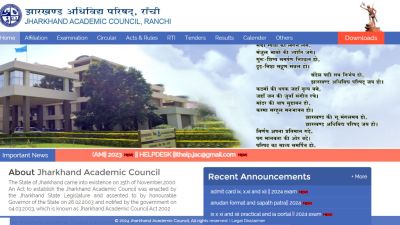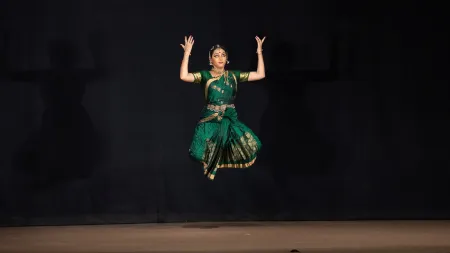- India
- International
Folk singer Prahlad Singh Tipaniya takes Kabir’s message of peace and harmony far and wide
Prahlad Singh Tipaniya, the folk singer who performs Kabir bhajans in the Malwi folk style from Madhya Pradesh (MP), has begun his performance and his powerful voice is drawing the swish set, who walk through the snaking lanes of Jogeshwari’s vegetable and meat market, and the hoi polloi alike.
 Prahlad Singh Tipaniya (in pink kurta) with fellow artistes during a performance
Prahlad Singh Tipaniya (in pink kurta) with fellow artistes during a performance
An empty patch of land at the heart of a slum in the suburbs of Mumbai echoes with Bhakti poetry strains and tambura notes. The ground, no bigger than half a basketball court, which doubles up as a school playground during daytime, is abuzz with visitors rushing to take up seats in the audience. As the first day of Kabir Festival’s Mumbai edition unfolds here, the sun sets on a nippy evening and the floodlights illuminate the makeshift stage.
Prahlad Singh Tipaniya, the folk singer who performs Kabir bhajans in the Malwi folk style from Madhya Pradesh (MP), has begun his performance and his powerful voice is drawing the swish set, who walk through the snaking lanes of Jogeshwari’s vegetable and meat market, and the hoi polloi alike. As he performs, Tipaniya says he has the locals, gathered on the periphery of the ground, on his mind.
“Kabir belongs to everyone. But while others come across Kabir’s work through literature and performances, these people rarely get an opportunity to listen to Kabir bhajans,” he points out after the performance, adding that for the last few years, he has been opening the festival with a performance at this venue, then taking his music across the city, to a mix of neighbourhoods over four days. The Mumbai edition of the festival concluded on January 21.
When Tipaniya had first heard a Kabir bhajan at a performance in 1979, it wasn’t the saint’s words but the sound of the tambura, a folk instrument of the stringed family being played alongside, that had caught his fancy. At the time, the BSc graduate had no inkling that his hobby would lead him to give up his job as a teacher of maths and science at the village school to become a Kabir singer.
“I started to sing because I was told it would help me learn the instrument. But over time, I saw the wisdom in the saint’s words… or perhaps the sound of the tambura resonated in my heart,” says the 64-year-old, who punctuates his performances with a discussion on Kabir.

The major leg of Tipaniya’s annual Kabir Yatra will begins on February 20. Starting from his village — Luniya Khedi in Ujjain district of MP — it will travel to nearly a dozen cities and villages in the state in a span of five days. When he started the tradition 24 years ago, it drew some 500-odd people. Today, the yatra, which draws over 12,000 people to Luniya Khedi, sees an audience of about two lakh. The lineup includes performances by 10 Kabir artistes, some of them continuing all night long, especially in the villages. “We are living at a time when Kabir’s message of peace, harmony and equality is needed more than ever before. There is a rise in the cases of discrimination and violence in the name of caste and religion, which needs to be addressed,” says the untrained singer, who was awarded the Padma Shri in 2011 for his work in the field of arts.
Tipaniya’s elder son Ajay, who plays the dholak, says that as travelling musicians, they have recently encountered immense hatred among people for “the other”. “These ideas often get planted in the head of the young, which is why there is a need to take Kabir to these young minds,” Ajay adds.
Having left teaching, Tipaniya, a Dalit, has opened a primary school in his village offering free education for Bahujan children. “When I was teaching at Gor Kheda village, I would see that Dalits had to remove and hold their footwear in their hands whenever they crossed an upper-caste neighbourhood,” he says, adding he had tried to open such a school in 2003, but had run out of funds. He says, “Many people are not aware of my caste. A Thakur had come to me and said that I should stop teaching these children because if we educate Dalits, no one will be left to do menial jobs. This is the kind of mindset that needs to change. And who better than Kabir to guide the way?”
Apr 19: Latest News
- 01
- 02
- 03
- 04
- 05


































